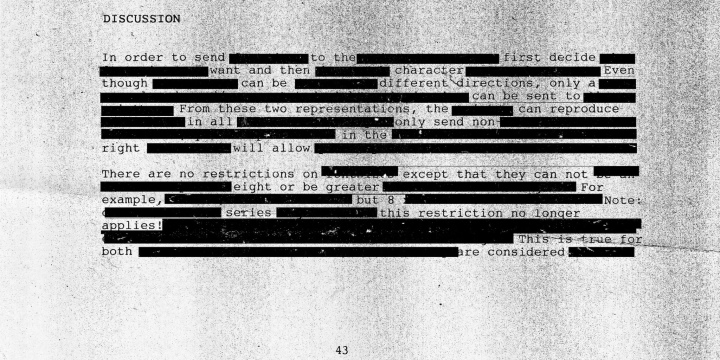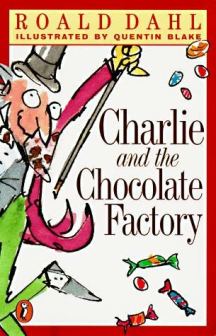I spent a longer-than-normal amount of time staring at this book in the bookstore, trying to decide if I wanted to buy it. It was on sale, just a few dollars — yet, I was perplexed.

Namely, because it was unclear (from the inside, vs. the outside of the book) whether or not I was looking at a purposeful work of fiction. The outside makes it very clear that the book is non-fiction — and then you flip it open, and it’s written like a novel, around a seemingly fictional main character. In the bookstore, I finally decided that it was meant as non-fiction and purchased it, because I was intrigued by the title (and the fact that the proclaimed “UFO Highway” runs straight across the part of the world that I live in).
I got the book home, started reading it… and was further confused. Was this a novel? It didn’t read like a piece of non-fiction. Scenes were too “set up”, too stagey, for a piece of non-fiction. It was a very odd way for a non-fiction piece to be written, because it was like it was asking not to be believed. Finally, I got on Amazon and tried to ascertain what the heck I was looking at — just looking for something that would either say “based on actual incidents” or “totally fake story”. Finally, I came across a review by the man who is the subject of the book, which led me to believe that this was at least marginally intended as a work of non-fiction.
Further confusing matters was the title — The 37th Parallel: The Secret Truth Behind America’s UFO Highway. This is a Very Misleading title; namely, because the book isn’t about that — it’s about the struggles of a man, Chuck Zukowski, who slowly becomes obsessed with finding the truth behind UFO-related phenomena. It’s about his sacrifices and personal cost as he researches things like cattle mutilations — coming up, time and time again, with nothing to show for his passion except a bunch of inexplicable points of contention — plus overdrawn credit cards and a rapidly fraying marriage.
In other words, the bulk of the book has nothing to do with the title. It’s kind of annoying and frustrating. In fact, when I reached a point about 3/4 of the way through, I was beginning to wonder if the title was ever going to come into play at all, and only continued reading because I was convinced that it wasn’t going to come into play and wanted to see if the book would fool me and turn things around again.
I also have to complain about the writing style. The 3rd-person, novelistic style did not suit the content. It detracted from the reality of the story, constantly making you think that you were reading something fake. It also read like something the the author had obvious cinematic plans for — which isn’t much of a stretch considering the author apparently also wrote the book that the movie The Social Network was based on, and that in the jacket bio the author refers to himself as “one of the most influential writers in the film industry.”
Finally, during the final fourth of the book, things get a little more interesting — the black helicopters and SUVs hinted at and implied in previous chapters finally come into play, and FINALLY, in the last few pages, we get the significance of the title explained to us.
In other words, the title of the book ruins the end of the book. The end of the book reads like it’s some big reveal — but we’ve known about this UFO highway thing ever since we picked the darn book up off the shelf. I know the publishers probably gave the book this title because people wouldn’t read a book called “Chuck Zukowski: The Little UFO Researcher Who Could” — I only bought this book because I was intrigued by the title — but it seems like a bait-and-switch. I didn’t want to read about some guy who’s having trouble with his wife because he’s investing too much time and money in his hobby. I wanted to read about that darn UFO highway!
Also, in a super annoying, super-stagey turn of events, words on the final page of the story were redacted: you know, the way they do in official government documents where things are too top-secret to show the general public:

I know what he was going for. The last quarter of the book got more into the “black helicopter” area – the government conspiracy stuff, SO IT’S LIKE THE GOVERNMENT GOT TO THE PUBLISHERS OF THE BOOK AND FORCED THEM TO REDACT STUFF. GET IT?!
I’m sorry, but the effect wasn’t cool, or sinister, or mysterious, or whatever it was that the author was going for. It was simply annoying, and reinforced the stagey, fakey quality of the book, further undermining that anybody seriously interested in the content is actually going to take this book seriously.
In the end, the book was just too cinematic to be believable, and too little composed of the things that I was hoping to read about based on the title. While I found out a few intriguing facts from it, those bits and pieces were far too few and far in between.
Not worth it. If you want to read about ostensibly “true life” alien stuff, read Communion.


